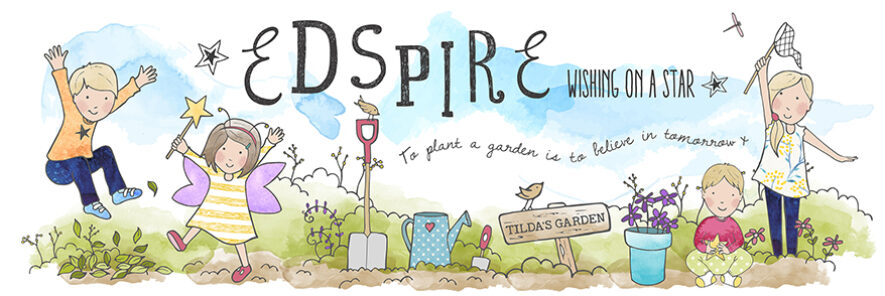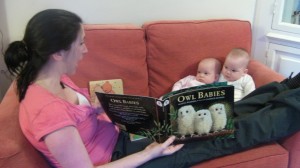This book by Martin Waddell I adore. It is such a simple, repetitive text but with much that can be read beween the lines. In our house this book is often performed with finger puppets! I find this text perfect for performing or reading aloud, gving each owl baby a distinct voice and character of its own. The text in parts is poetc and reads much like a lullaby. It is a classic bedtime tale.
Three owl babies, Sarah and Percy and Bill, are waiting together for their Mummy to come home from hunting. They are worried that she might not return and Bill in particular really wants his Mummy. Together they wonder where she might be and when she will be home. They huddle together for warmth and comfort until soft and silent Mummy swoops through the trees to Sarah and Percy and Bill.
This book is also perfect for use in the classroom for children aged 5 – 7.
My favourite activity is to use puppets or sequencing cards to retell the story.
You can split a class into three groups and ask each group to read the speech of one of the owls and try to imagine what that owl is thinking and feeling. The children could then extend their character profiles by using their understanding of the three personalities to try imagining how they would each respond to other situations, such as learning to fly, making a new nest and finding their own food.
During a shared re-reading of the story you can ask children to listen carefully to the babies’ speech and decide at the end of each page whether the owls are getting more nervous as the story progresses. A nerve chart/graph can be used to support visual and kinaesthetic learners. Understanding characters’ motivation for their actions is an important part of reading and understanding narrative fiction.
Ask children to think how a trio made up of their own friends and family would respond differently to various situations. Encourage children to think of times when they have been scared or excited and when they have reacted differently to a family member or friend. Think about actions, words and feelings. Role play could be used to explore different situations.
A great tool for the classroom is Role on the Wall. Draw an outline of each owl baby on the wall and then write key words about their character on to the outline. What they look like on the outside and what they think and feel on the inside of the outline. This is a good plenary activity that can be used after characters have been explored through role play.
As well as being a beautiful simple story, Owl Babies also exemplifies theuse of a full ramge of punctuation marks in context. This book is a great resource for sentence level work in literacy. How many different words, for example, can children come up with to replace ‘said’?
For a book with so few words, there is so much to be gained from sharing this story wih children in your classroom or your home.
Why not try these ideas linked to the text?
Ask children to write a set of Keep Safe rules (procedural text) for the owls when their mother is a way or for themselves in a given situation – in the playground, in the classroom etc.
Compare Owl Babies with the first chapter of The Owl Who Was Afraid of the Dark to compare the feelings of the Plop with Sarah, Percy and Bill.
Ask children to compose a speech by the mother owl to make the owls feel better. The Owl Mother puppet can be used for children to deliver their speech through. This could be a good paired activity.
Make a class reference book called ‘All About Owls’, use the information text included as an introduction to the text type and as a model for children’s own text.
Incorporate the use of ICT and create a web page, ‘All about Owls’.
A fantastic resource and a right good read!


A really good review, Jennie. Sounds like an excellent book and your ideas on using it for learning are brilliant. I never know which books to get and indeed was frustrated in town the other day when I just didn’t know which to buy. Unless it’s older kids I’m clueless with stuff like this!!!
Esther and William look enthralled – might have to track a copy down! xxx
Pingback: Gifts for Baby – Edspire
Pingback: Autumn Leaves: Stories for the Season | Edspire